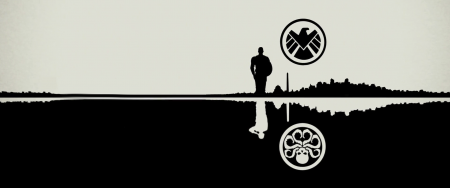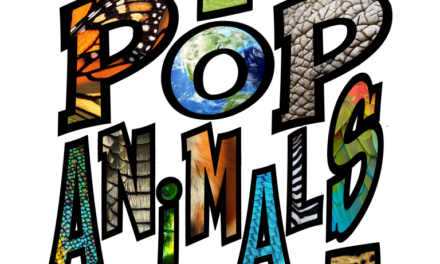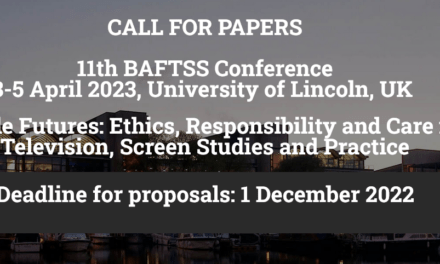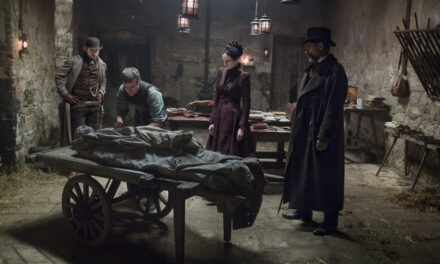“A Part of Something Bigger”: Critical Approaches to Agents of S.H.I.E.L.D. and The Avengers
A Special Issue of Slayage: The Journal of the Whedon Studies Association
Co-Editors: Erin Giannini and Eve Bennett
Agents of S.H.I.E.L.D./The Avengers represent something of an anomaly in the Whedonverse/Mutant Enemy canon; while each Whedonverse series is a co-production (eg: Angel: Mutant Enemy/Greenwalt Productions; Buffy the Vampire Slayer: Mutant Enemy/Kuzui Enterprises), only the properties co-produced with Marvel primarily feature characters neither created nor developed by Whedon and company; indeed, many come with massive (and occasionally contradictory) backstories developed by numerous writers over decades and across media. Given the films’ and series’ status as the most recent output from Mutant Enemy, as well as the series’ status as a Mutant Enemy—but not Joss Whedon—production, there are numerous, and thus far untapped, directions through which both the film and series can be examined. This includes the particular differences in “vision” between the collaborative but unified styles and narratives of Mutant Enemy and more diffuse and multiply-authored, but not always collaborative, Marvel Studio productions (despite attempts at said unification through the creation of the Marvel Cinematic Universe).
Proposals may include, but are not restricted to:
- The positioning (or not) of the film and the series as part of the Whedonverse
- Agents of S.H.I.E.L.D. as a “family affair”: Jed Whedon, and Maurissa and Kevin Tancharoen; the “absence” of Joss Whedon
- “A lot of filing, giving things names”: The power of names in Agents of S.H.I.E.L.D./The Avengers; Alphonsus MacKenzie as “namer” of humans (Fitz as “Turbo”) and Inhumans (“Tremors”/”Yo-Yo”).
- The ethics of war
- Ethics/responsibility of science and technology
- The use of artificial intelligence and technology in sustaining or creating life
- Modes of leadership: The Avengers/Nick Fury, Coulson vs. Gonzales (season 2)
- Adaptation: from comics to film and television (eg, Daisy Johnson/Quake; Calvin Zabo/Mr. Hyde)
- Who owns the show? Questions of auteurship and authoring within the MCU/Agents of S.H.I.E.L.D.
- Narrative and visual styles/visions of Mutant Enemy and Marvel (see, as per example: Hammer studios/Universal for horror in the early 20th century; AIP as the B-movie studio).
- The Framework arc (season 4) as contemporary political commentary
- Agents of S.H.I.E.L.D. and The Avengers positioning with science fiction film and television
- Issues of gender and representation with the film and the series
- Transmediality and transmedia texts in Agents of S.H.I.E.L.D. (e.g., “Slingshot” web series/references to the Marvel Cinematic Universe)
- The existence (or lack) of Whedon tropes—dialogue, chosen families, etc.—within The Avengers or Agents of S.H.I.E.L.D.
- Intersections between Marvel and Mutant Enemy
- References in character and narrative in Mutant Enemy’s earlier series to Marvel properties (e.g., Kitty Pryde as inspiration for Buffy, Xander’s reference to the gathering of the Scoobies as “Avengers Assemble” [“The Freshman” 4.1])
- A bigger canvas? Whedon’s shift (return) to film
- The limitations/benefits of Agents of S.H.I.E.L.D.’s positioning on a “Big Three” network (ABC), in relation to both earlier Mutant Enemy series (on netlets and Fox) as well as the broader Marvel television universe (on Netflix)
- Agents of S.H.I.E.L.D. and the broader Marvel television universe/MCU compared with DC’s dominance of the CW/DCU
- Agents of S.H.I.E.L.D. as adjunct to the MCU; e.g., season 4 as expansion of Age of Ultron’s storyline
- Marvel’s treatment of writers/directors (Edgar Wright/Jon Favreau/Joss Whedon) compared or contrasted with Mutant Enemy (Jane Espenson/Marti Noxon, Drew Goddard, etc)
Please send a 200-300 word proposal and a short bio by July 15, 2018 to Erin Giannini (egiannini37@gmail.com) and Eve Bennett (eve.bennett@univ-paris3.fr). Decisions will be made, and everyone will be notified, by August 1, 2018. If your proposal is accepted please note that a first draft will be due by September 30, 2018.






